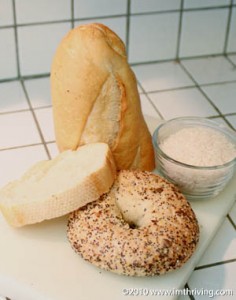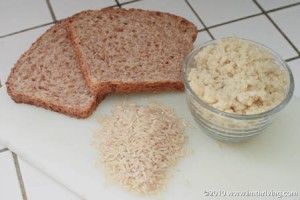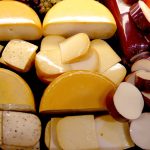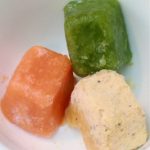Quit Calling Carbs “Bad!”
I wish the media would quit misusing the word “carbs” (short for carbohydrates). I keep seeing the word “carbs” being used in a negative fashion: “Don’t Eat Carbs,” “Low Carb Diet,” “Carbs are Bad,” “Avoid Carbs.” Carbs this — carbs that. And in most all cases, what they are really talking about are processed starches, not the ever-encompassing food category of carbohydrates. C’mon… fruits and vegetables are carbs!
Nutrition 101
There are three categories of food: proteins, carbohydrates and fat. Food can be one or a combination of those three. Usually we will just throw a food into one category by what it is mostly composed of. For example, meat is categorized as a protein, even though it is both protein and fat. Milk is categorized as protein, even though it contains protein, sugar (carbs) and fat. For the sake of simplicity, here are common foods and their categories:
Proteins: meat (all animal flesh), milk, eggs, beans, nuts, seeds
Carbs: grains, fruit, vegetables
Fat: oil, butter
Refined Processed Starches – a.k.a. “Bad” Carbs – the Foods that Make You Tired and Fat

Now you may be asking, “but where’s the bread, pasta, rice (white), sugar and potatoes?” Hmmm… notice those are the foods that usually come to mind when the word “carbs” is used? Well, I pretty much just listed whole foods in the categories, not processed foods. And THAT’S one of the key differences between “good” carbs and “bad” carbs. Think “white” when thinking about bad carbs. Bad carbs are usually white processed and/or starchy foods: white breads or baked goods, white pasta, white rice, white sugar, potatoes (Although, a potato is a whole vegetable, the glycemic load is high, which is what makes a “bad” carb bad, but I’ll get to that later.). These processed and/or starchy carbs (starch converts into sugar when consumed) are usually stripped of nutrients, fiber, and healthy fats and have a high glycemic load. Meaning, it causes blood sugar to quickly spike, causing an overflow of insulin (which also causes fat storage), which then results in low blood sugar, which leads to fatigue and false hunger, which leads to over consumption of food, which leads to gaining unwanted fat.
Fruit, Vegetables and Whole Grains – a.k.a. “Good” Carbs – the Foods that Give You Energy and Are Good For You
Good carbs are usually whole unprocessed foods, such as fresh fruit, vegetables and whole grains. These are GOOD for you and will give you energy and help maintain or lose weight. In whole foods, such things as fiber, fat and protein help to keep the glycemic load down so those crazy spikes of highs, lows, and over-eating don’t occur, and you get a slow continuous calorie burn and release of energy.
Summary
A healthy diet is usually high in good carbs and low in bad carbs (as well as animal protein and saturated fat). In other words, high in fresh fruit, vegetables and whole grains; low in processed white products (such as bread, baked goods, pasta, sugar, white rice), potatoes, meat, cheese, milk.
NOTE FOR POTATO LOVERS: eat smaller potatoes, such as red potatoes, with the skin and don’t over do it. Potatoes have a lot of good nutrients. But because they are so starchy with a high glycemic load, you need to eat them in moderation, and preferably with some protein and fiber such as vegetables so your blood sugar doesn’t spike.

Some Substitutions
White rice – brown rice or quinoa (pronounced keen-wah) quinoa is a whole grain that is also a complete protein
White bread – whole grain bread (make sure it doesn’t have high fructose corn syrup) the less processed the better, such as sprouted grain bread
Pasta – whole wheat pasta
Instant Oatmeal – whole oat groats or slow cooked old fashioned style. add fruit for more fiber, nutrients and sweetness. nuts, cinnamon and vanilla are also nice additions. nuts add good fat and protein. cinnamon helps to balance blood sugar.
Refined Sugar – whole sugar such as sucanat, honey, real maple syrup, molasses. Whole sugars have many minerals and nutrients and a lower glycemic load than refined sugar.






Leave a Reply